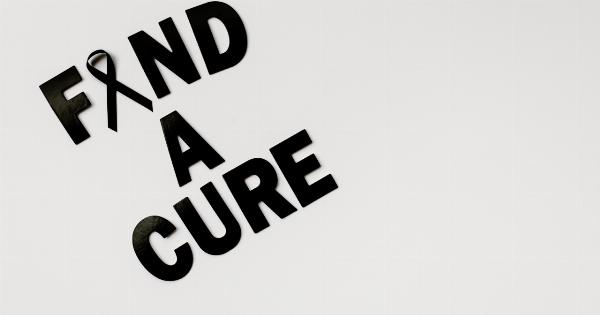Identifying cancer symptoms at an early stage can help individuals start treatment sooner, which can improve their chances of successful recovery. Hence, it is important to learn about the early warning signs and how to recognize them.
One way is through images that can help you understand the symptoms better. In this article, we will discuss the different types of cancer and their symptoms as well as provide images to help recognize them.
Types of Cancer
Cancer is a disease that results from abnormal cell growth. It can affect any part of the body and has different types. Here are some of the most common types of cancer:.
Breast Cancer
Breast cancer is a type of cancer that affects the cells in the breast. It’s most common in women but can sometimes occur in men. There are different types of breast cancer, including ductal carcinoma, lobular carcinoma, and inflammatory breast cancer.
The most common symptom of breast cancer is a lump or thickening in the breast tissue.

Lung Cancer
Lung cancer develops in the cells of the lungs. It is the leading cause of cancer-related deaths worldwide. The two main types of lung cancer are small cell lung cancer and non-small cell lung cancer.
The symptoms of lung cancer include coughing, wheezing, chest pain, shortness of breath, and coughing up blood.

Prostate Cancer
Prostate cancer develops in the cells of the prostate gland in men. It is the second most common type of cancer in men, after skin cancer. Prostate cancer often grows slowly and may not cause any symptoms at first.
The symptoms of prostate cancer include trouble urinating, blood in the urine or semen, bone pain, and erectile dysfunction.

Colorectal Cancer
Colorectal cancer is a type of cancer that develops in the colon or rectum. It is the third most common type of cancer in men and women.
The symptoms of colorectal cancer include changes in bowel habits, blood in the stool, abdominal pain, and unexplained weight loss.

Leukemia
Leukemia is a type of cancer that affects the blood and bone marrow. It is the most common type of cancer in children but can also occur in adults.
The symptoms of leukemia include fatigue, fever, infections, easy bruising or bleeding, and pain in the bones or joints.

Common Cancer Symptoms
There are some common symptoms of cancer that can apply to different types. Here are some of these symptoms:.
Unexplained Weight Loss
Weight loss that occurs without trying can be a sign of cancer. This is because cancer cells use up the body’s energy supply and cause weight loss.

Fatigue
Feeling tired all the time, even after getting enough rest, can be a sign of cancer. Cancer cells use up a lot of the body’s energy, which can cause fatigue.

Pain
Persistent pain that does not go away can be a sign of cancer. This could include headaches, back pain, stomach pain, or bone pain.

Skin Changes
Changes in the appearance of the skin, such as darkening or yellowing, can be a sign of cancer. This could also include new moles or changes in existing moles.

Changes in Bowel or Bladder Habits
Changes in bowel or bladder habits could be a sign of cancer. This could include diarrhea, constipation, blood in the stool, or frequent urination.

Coughing or Hoarseness
Persistent coughing or hoarseness can be a sign of cancer, particularly in the lungs or throat.

Conclusion
Cancer can affect anyone, and it’s important to recognize the early warning signs. Knowing how to recognize cancer symptoms through images can be a valuable tool in identifying the disease at an early stage.
If you experience any of the symptoms discussed in this article or have any concerns, it’s important to see your doctor.




















